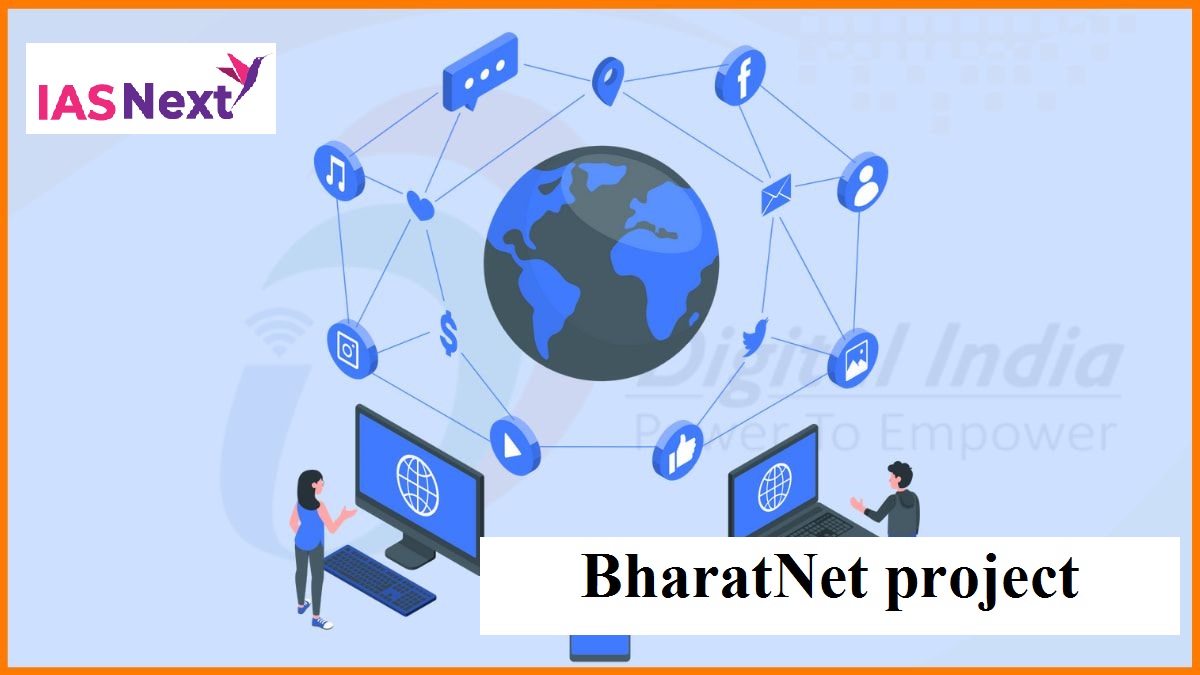CURRENT AFFAIRS
Get the most updated and recent current affair content on Padhaikaro.com
BharatNet project
- IAS NEXT, Lucknow
- 28, Apr 2022

Reference News:-
The delay in the Bharatnet project, aimed at connecting gram panchayats through broadband, has resulted in a cost escalation from Rs 20,100 crore to Rs 61,109 crore.
- This is partly due to the ineffectiveness of Bharat Broadband Network (BBNL), the entity set up to implement the project to connect 250,000 gram panchayats with optic fibre, for high-speed broadband connectivity.
- With BBNL not delivering the desired results, the government now plans to merge BBNL with BSNL. The merger is expected to yield better synergies and coordination.
Need for:
- BBNL was incorporated in February 2012 as a special purpose vehicle for implementing the national optical fibre network (now renamed Bharatnet). But ostensibly due to poor coordination between multiple agencies, BBNL has failed to meet targets.
- The Union Cabinet had approved the project on October 25, 2011 and it was to be completed in three years. But even after 11 years, only around 172,000 gram panchayats have been made service-ready.
About BharatNet:
- BharatNet Project was originally launched in 2011 as the National Optical Fibre Network(NOFN) and renamed as Bharat-Net in 2015.
- It seeks to provide connectivity to 2.5 lakh Gram Panchayats (GPs) through optical fibre.
- It is a flagship mission implemented by Bharat Broadband Network Ltd. (BBNL).
- The objective is to facilitate the delivery of e-governance, e-health, e-education, e-banking, Internet and other services to rural India.
The larger vision of the project is:
- To establish a highly scalable network infrastructure accessible on a non-discriminatory basis.
- To provide on demand, affordable broadband connectivity of 2 Mbps to 20 Mbps for all households and on demand capacity to all institutions.
- To realise the vision of Digital India, in partnership with States and the private sector.
Implementation:
The project is a Centre-State collaborative project, with the States contributing free Rights of Way for establishing the Optical Fibre Network.
The entire project is being funded by Universal service Obligation Fund (USOF), which was set up for improving telecom services in rural and remote areas of the country.